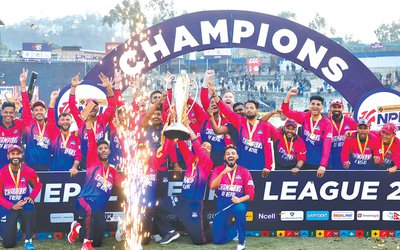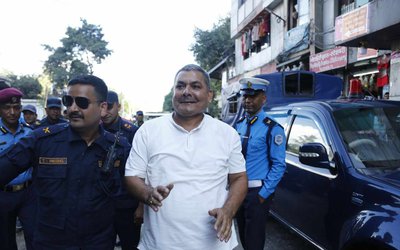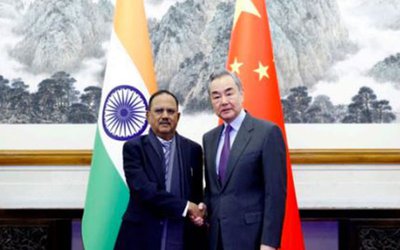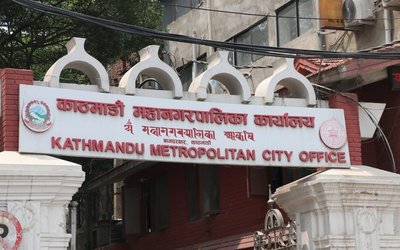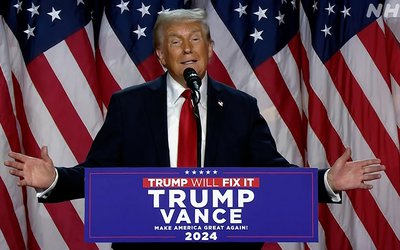Among the first decisions that the cabinet headed by G P Koirala took soon after being sworn in as the Prime Minister by King Gyanendra in April 2006 was to erase Poush 27-- the birth anniversary of late Prithvi Narayan Shah -- being celebrated till then as the National Unity Day from the list of public holidays. That one single act of the government gave many messages. That national unity was not the major or a priority objective of the new political set-up that took over power post 2006 movement was a message many understood, but only few or an insignificant number of people spoke. Krishna Sitaula, the then Home Minister who announced the decision, many thought, was a mere 'goti' and he initiated this decision to appease the 'string-pullers'. Although the Maoists had not joined the government then, many thought they were dictating the government. And Sitaula was seen as the number one 'goti' of the Maoists.
But that premises fell last week when Prime Minister Baburam Bhattarai, the public face of the Unified Communist Party of Nepal-Maoists, as well as that of the decade-long insurgency, declared 'We all are gotis', and 'we are being used by others'. But the self-confessed 'goti' did not announce who the striker or life force behind that was. Yet, it exposes the true face of our leaders from Bhattarai to G P Koirala to Madhav Nepal and K P Oli, just to name a few. The confession of Bhattarai also brings many decisions of the past governments-especially the post 2006 ones-- into debate.
And what would be the first few assignments given to the gotis? DEMOLISH everything that is national, and for that iconic symbols must be demolished. DEMOLISH everything that represents unity of diversities, including nationalism, culture, religion and language. For that, raising divisive issues is the best way out. First, by denigrating Prithvi Narayan Shah, the post 2006 leadership tried to undo everything that the late king did. Unity of the country, sound administrative, domestic and foreign policy that he advocated, his belief in probity in public life, and his respecting religion and culture of others--all came under attack under the new dispensation. The campaign against Nepal, Nepali and Nepalism began, and most of that with visible support --both political and financial and logistical--from outside forces.
After Prithvi Narayan Shah, Bhattarai ordered the government to bring down the statue of King Tribhuvan from Shahid-gate, something that remains stalled following the order of the Supreme Court. A few months after Bhattarai's order, S. D. Muni says Tribhuvan had asked Nehru to merge Nepal into India, something Muni himself admitted, had no proof. Muni tried to project Tribhuvan as a 'traitor' and Bhattarai was trying to bring down Tribhuvan's statue from the martyr memorial. So, who does Bhattarai go by?
When he sees the prospects of having to get out from the Prime Minister's position, Bhattarai is trying to emulate his leader Prachanda, who said on May 4, 2009 that he chose to step down rather than appeasing the 'foreign lord'. No political leaders, including G P Koirala, Madhav Nepal, K P Oli or even Jhalanath Khanal, asked him to spell out or identify who the 'foreign lord' was. And Prachanda got away with it. Now Bhattarai says 'we all are gotis or pawns.’ Although he made the statement in a closed room of the Prime Minister's official residence at Baluwatar, Bhattarai made it more obvious than Prachanda. He said 'China has openly opposed ethnic federalism'. This was his way of protesting against the 'outside interference' in Nepal's domestic affairs. In the next breadth, he told a select group of journalists that another country (read India) was trying to have a particular person appointed as the Chief Secretary 'but I stood my ground and appointed the most deserving person in the post'.
All these cries over 'foreign interference' and his admission of being a 'goti' came in the wake of disclosure--thanks to Prof. Muni that Bhattarai and Prachanda had written a joint letter to Indian Prime Minister Atal Behari Vajpayee way back in June 2002 asking for India's support to the cause they wanted to highlight by raising arms against the state (Nepal) since 1996. In lieu of that support, they promised they would not do any harm to India's interests. Apparently, Indian establishment was convinced that they were making genuine promises, and relaxed restrictions on Maoist leaders’ movement and activities, although their attack on Nepali citizens, politicians, and vital installations under supervision of the top leaders from India continued. Prachanda and Bhattarai continued to feed political doctrines to their cadres that they must continue fighting against 'imperialistic U S and hegemonic India'. Five years down the line, the Maoist cadres, including the combatants, are now saying 'we were cheated and betrayed by our leaders in the name of revolution."
And the revolutionary leaders confess 'we are nothing but gotis'. But the 'gotis' -- no matter who their masters are -- were elected by the Nepali people, and they need to submit themselves before the people for punishment. From globally mobile elite forming the core of civil society leadership of 2006 to most top leaders of the Nepali political parties, including the Nepali Congress, UML and others, no one has asked Bhattarai to reveal more. Because most of them share the same predicament and status. The days of the gotis must be over if Nepal is to usher in a phase of stability which can be guaranteed only if nationalism and democracy are consolidated together. For that, the major agreements done by the big 'gotis' in the past five years need to be reviewed and rejected whenever necessary for the larger cause.
- SWISS SUPPORT: Construction Of A Trekking Trail In Koshi
- Dec 19, 2024
- PM OLI'S VISIT TO CHINA: BRI Agreement
- Dec 16, 2024
- RASUWAGADHI AND SANJEN: Begin Generation
- Dec 03, 2024
- NEPAL, INDIA ELECTRICITY TRADE Nepal's Advantage
- Dec 02, 2024
- PM Oli'S VISIT TO CHINA: Nepal's Dilemma
- Dec 01, 2024

